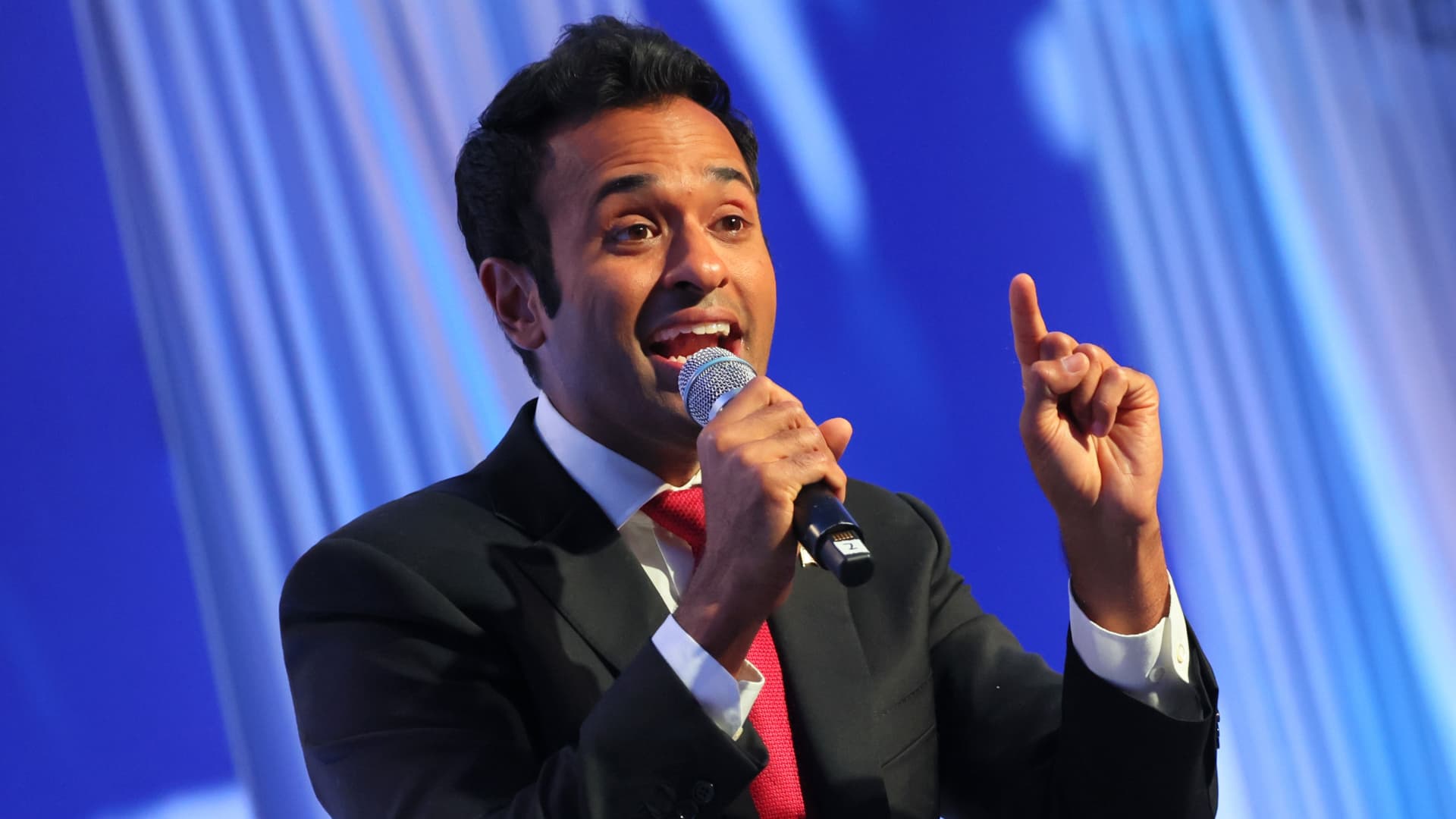Republican presidential candidate Vivek Ramaswamy speaks during the Moms for Liberty Joyful Warriors national summit at the Philadelphia Marriott Downtown on July 01, 2023 in Philadelphia, Pennsylvania.
Michael M. Santiago | Getty Images
Republican presidential candidate Vivek Ramaswamy is adding a novel incentive to his grassroots fundraising operation: paying supporters back a chunk of what they raise for his campaign.
Ramaswamy, an entrepreneur who has largely fueled his own longshot bid for the 2024 nomination, bills the new initiative as a way to “democratize political fundraising.” It may also help drive down the size of Ramaswamy’s average donation, a key figure for candidates seeking to tout broad support from grassroots voters rather than wealthy donors.
Ramaswamy’s campaign said it has already amassed more than 60,000 donors, exceeding the 40,000-donor threshold to qualify for the Republican presidential debate set for Aug. 23.
The campaign says the program, called “Vivek’s Kitchen Cabinet,” will give supporters a 10% commission of the total they raise for Ramaswamy’s White House bid. Participants will get a unique fundraising link to share to prospective donors, and they will be able to track their efforts through a “personal dashboard,” according to the campaign.
The campaign also promises “special awards,” such as a personal call with the candidate and invites to events.
Those who sign up for the program are told that they will be contacted by a third-party background checking agency to ensure eligibility. Ramaswamy’s campaign did not immediately say which agency will conduct those background checks.
Ramaswamy’s campaign said it has vetted the program with the Federal Election Commission, though some campaign finance experts say the incentives it introduces might raise ethical concerns.
Ramaswamy, 37, had given his campaign more than $10.5 million in loans and contributions as of the end of March.
Soliciting groups of donors for campaign contributions, or bundling, is commonplace in campaign fundraising. But Ramaswamy’s program looks poised to expand the practice beyond the usually small circle of wealthy or well-connected operatives who tap their networks for checks.
“There’s a tiny group, it’s an oligopoly, of people who raise money, bundling and otherwise, who get to keep a large percentage, sometimes up to 10%, of what they actually raise,” Ramaswamy said in a video posted on his social media Monday morning.
“I don’t like this system as it exists. But if that’s the system were going to have, my view is, let’s democratize that and make it possible for everybody to make money as well,” he said.
This story originally appeared on CNBC

